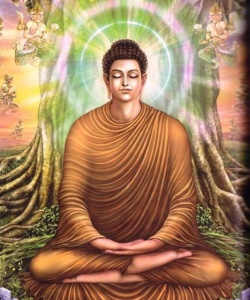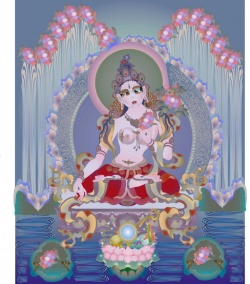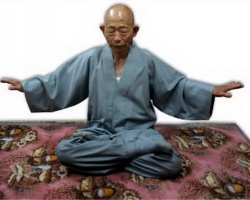Why is Sila/Ethics Necessary?
If we are to believe that there is dependant origination but also experientially that everything happens out of nowhere; then what is the correct approach to sila/ethics and what result is it trying to achieve/condition ?
Ethical Conduct (Sila)
The avoidance of all wrongdoing,
The undertaking of what is skillful,
The cleansing of one’s own mind—
This is the teaching of the buddhas.
— Dhammapada 183
Ethical conduct is one of the three main lines of development of the noble eightfold path. Skillful ethical conduct is considered to be a necessary prerequisite for the other two lines of development, which are meditative stabilization and discernment. This consideration of ethics is functional and straightforward: if we are engaging in unethical conduct the mind will be conflicted and unable to develop the mental qualities needed for steady mindfulness, full awareness, and mental composure. And without the stability of meditative composure the mind cannot develop discernment. This is the case regardless of whether or not we are aware of any conflicted defilements.
The integral role of ethical conduct as foundational for the subsequent development of all of the productive affective and cognitive qualities of the path and fruition is explained in AN 11.1 Kimatthiya Sutta:
“What is the purpose of skillful ethical conduct, venerable sir? What is its reward?”
“Skillful ethical conduct has freedom from remorse as its purpose, Ananda, and freedom from remorse as its reward.”
“And what is the purpose of freedom from remorse, venerable sir? What is its reward?”
“Freedom from remorse has gladness as its purpose, Ananda, and gladness as its reward.”
“And what is the purpose of gladness, venerable sir? What is its reward?”
“Gladness has joy as its purpose, Ananda, and joy as its reward.”
“And what is the purpose of joy, venerable sir? What is its reward?”
“Joy has tranquility as its purpose, Ananda, and tranquility as its reward.”
“And what is the purpose of tranquility, venerable sir? What is its reward?”
“Tranquility has pleasure as its purpose, Ananda, and pleasure as its reward.”
“And what is the purpose of pleasure, venerable sir? What is its reward?”
“Pleasure has meditative composure as its purpose, Ananda, and meditative composure as its reward.”
“And what is the purpose of meditative composure, venerable sir? What is its reward?”
“Meditative composure has gnosis and vision of things as they are as its purpose, Ananda, and gnosis and vision of things as they are as its reward.”
“And what is the purpose of gnosis and vision of things as they are, venerable sir? What is its reward?”
“Gnosis and vision of things as they are has disenchantment as its purpose, Ananda, and disenchantment as its reward.”
“And what is the purpose of disenchantment, venerable sir? What is its reward?”
“Disenchantment has dispassion as its purpose, Ananda, and dispassion as its reward.”
“And what is the purpose of dispassion, venerable sir? What is its reward?”
“Dispassion has gnosis and vision of liberation as its purpose, Ananda, and gnosis and vision of liberation as its reward.”
Suttanipata 5.11 offers the following explanation of the importance of ethical conduct in terms of its relationship with the eventual fruition of the path:
Dispel greed for sensual pleasures,
Having seen renunciation as safety,
May there be nothing
Grasped or rejected by you.
Dry up what was before.
May there be nothing after.
If you do not grasp anything in the middle,
You will wander calmed.
One completely without greed
For name and form, brahma?a,
Has no mental outflows by which
He would go under the sway of death.
And so ethical conduct isn’t to be understood as an end in and of itself. It’s a means skillfully employed to bring the re-becoming process of sa?sara to an end. It’s a line of development oriented towards the goal of ending birth and death. Therefore this contemplative conduct actually transcends conventional norms of “goodness.”
There are repeated injunctions in the discourses — most notably in the fourth chapter of the Suttanipata — stating that the practitioner should not even grasp onto notions of goodness, because it’s understood that such clinging only reinforces identification with a view of self. Such identification can all too easily lead to views of moral superiority and self-righteous indignation. And there is nothing skillful in looking down upon others.
In practice, ethical conduct begins as the support (a somewhat shaky support for most of us) for the practice of meditation. And then over time, the calm (samatha) and full awareness (sampajañña) developed through meditation begins to reciprocally support and strengthen our ethical conduct. This makes it easier to see unskillful thoughts as they are manifesting, allowing us to abandon such thoughts, replacing them with productive, skillful applications of contemplation before they can manifest as unskillful speech or actions. In this way all aspects of the eightfold path are integrated, and progress along the path is understood to depend upon the refinement of the various aspects of ethics, meditation, and discernment.
Ethical Conduct | Sila
Ethical conduct is one of the three main lines of development of the noble eight... See More
Although of course, for me at least, a conflicted mind cannot always be avoided but anything that helps move things in the other direction is helpful
Measurelessmind for mahayana teachings would be awesome.
If you act in the ways prohibited by the precepts your mind will be disturbed and you will not be able to achieve the clarity of mind necessary for insight which leads to liberation from suffering.





